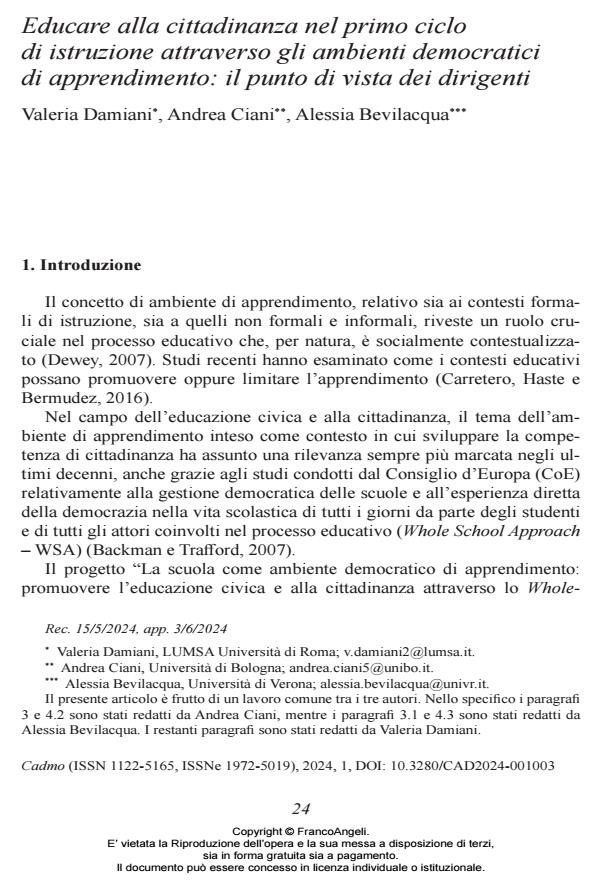Educating for citizenship through democratic learning environments: the perspectives of school principals
Journal title CADMO
Author/s Valeria Damiani, Andrea Ciani, Alessia Bevilacqua
Publishing Year 2024 Issue 2024/1
Language Italian Pages 21 P. 24-44 File size 183 KB
DOI 10.3280/CAD2024-001003
DOI is like a bar code for intellectual property: to have more infomation
click here
Below, you can see the article first page
If you want to buy this article in PDF format, you can do it, following the instructions to buy download credits

FrancoAngeli is member of Publishers International Linking Association, Inc (PILA), a not-for-profit association which run the CrossRef service enabling links to and from online scholarly content.
The project “The school as a democratic learning environment: pro-moting civic and citizenship education through the whole-school ap-proach in the first cycle of education”, financed under the PRIN 2022 projects – Next Generation EU, is built upon the studies conducted on democratic learning environments for civic and citizenship education and aims at its promotion through a whole-school approach. This article presents the first results of the analysis of the school contexts, conduct-ed through the methodology of the multi-perspective case study. In par-ticular, it is focused on analyzing the semi-structured interviews con-ducted with the school principals of the six schools involved in the pro-ject. The interviews tackled topics such as the school characteristics, the curriculum for civic and citizenship education, democratic learning en-vironments at school, and the professional development of teachers. The analysis highlighted that democratic learning environments are still an unexplored area in the participating schools, where activities with external groups and organizations are the most common form of initia-tive. In the second phase of the project, in-service training will be imple-mented with the teachers of the selected schools to promote teaching and learning activities aimed at developing students’ citizenship compe-tence and democratic learning environments to experience citizenship in the classroom, at school and beyond the school walls.
Keywords: civic and citizenship education, Italy, whole-school ap-proach, school principals.
Valeria Damiani, Andrea Ciani, Alessia Bevilacqua, Educare alla cittadinanza nel primo ciclo di istruzione attraverso gli ambienti democratici di apprendimento: il punto di vista dei dirigenti in "CADMO" 1/2024, pp 24-44, DOI: 10.3280/CAD2024-001003